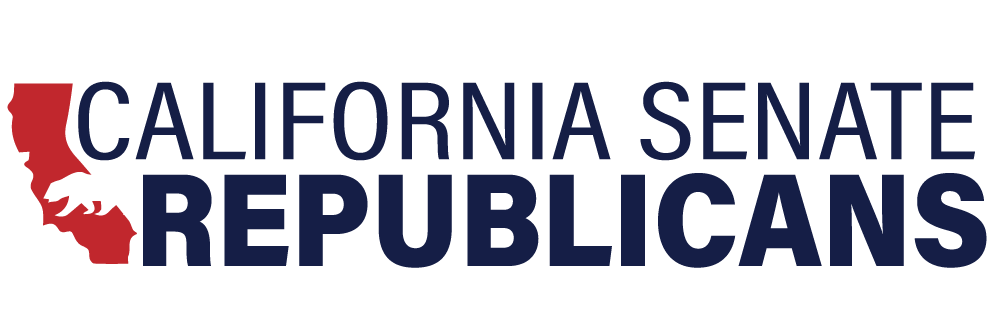Senate Committee on Budget and Fiscal Review
Early Action Package Reliant on Gimmicks, Delays, and Borrowing. The full committee met Wednesday, April 10, to pass AB 106 (Gabriel), a budget bill that authorizes $1.6 billion in early action solutions. The bill also declares the intent to pass additional solutions later on that Democrats claim will total $17 billion toward addressing what may be a $73 billion deficit in 2024-25. Most of the solutions consist of one-time actions such as borrowing, spending delays, and fund shifts, while only 21 percent consist of spending reductions. This package, like the overall budget proposed by Governor Newsom in January, will do little to bring ongoing spending in line with tax revenues. The majority party appears to be papering over the deficit for one year, even though the Governor’s projections already indicate massive deficits averaging over $30 billion for each of the following three years. The deficit is likely to worsen once tax estimates are updated in May, even without considering the possibility of a recession. Several Senate Republicans weighed in on the passage of AB 106 in a statement issued April 11.
Subcommittee #1 (Education)
Budget Should Prioritize Identification of Reading Disabilities. The subcommittee reviewed proposals to improve literacy and math comprehension in K-12 education. Senator Scott Wilk (R-Santa Clarita), who co-authored legislation in 2023 to provide universal screening for reading disabilities in kindergarten through second grade, spoke in favor of funding the roll-out of such screening in the budget. Earlier identification of reading disabilities could help improve students’ reading abilities and thus their future prospects. “This should be part of our values,” Senator Wilk said. “We have a moral obligation to every child… but children have been falling through the cracks... I know we’re pinching pennies, but… this is something we need to go full steam on.” When compared to the rest of the nation for 4th grade reading, California scored about the same as 37 other states, including Texas, but significantly worse than Florida. For 4th grade math, California performed significantly worse than 29 other states, including both Texas and Florida (Nation's Report Card, 2022 data).
Subcommittee #2 (Resources, Environmental Protection, and Energy)
Urgent Need for Infrastructure Funding Amidst Insurance Challenges. The subcommittee delved into capital outlay projects aimed at modernizing the state's deteriorating infrastructure utilized by firefighters and other emergency responders. A significant hurdle has emerged as insurers increasingly reject coverage for these multimillion-dollar projects, impeding their ability to secure financing from banks. This setback poses a serious challenge to California's fire prevention efforts. "There’s a story here,” Senator Dahle (R-Bieber) remarked, “We can’t get fire insurance for a fire station manned by firefighters. That’s crazy. And just one of the many crises facing California right now." In cases where capital outlay projects fail to secure financing, the state is compelled to self-insure, necessitating payment through the General Fund. Senator Dahle emphasized the urgent need for investment in these projects, highlighting the escalating costs of labor and materials in the state, exacerbated by Democratic policies. "These projects will significantly enhance our fire response capabilities and mitigate the billions in losses witnessed in recent years," Senator Dahle continued. "Investing now is imperative, serving as the most effective insurance policy to safeguard California against future catastrophes." The subcommittee's deliberations underscore the urgent need for collaborative action to address California's infrastructure challenges amidst mounting insurance obstacles.
Subcommittee #3 (Health and Human Services)
Prioritizing Our Most Vulnerable Citizens in the Midst of Cuts. The subcommittee discussed the Governor’s budget proposals to cut a cumulative $293 million from CalWORKs programs and to withdraw $900 million in reserve funds that were meant to maintain Medi-Cal and CalWORKs services during economic downturns. Senator Shannon Grove (R – Bakersfield) raised concerns about how the Governor chose which programs to cut, and she questioned the Governor’s use of the reserve funds without demonstrating it would avoid further cuts to CalWORKs and Medi-Cal services. One of the more glaring proposed cuts is to the Family Stabilization Program, which provided services to about 44,000 families in 2022-23, including domestic violence counseling, emergency shelter, mental health, and transitional housing. In contrast, the Governor has chosen to spend billions of dollars to expand new programs in other areas of the budget. Senator Grove expressed frustration with the Governor’s choice to deprioritize some of California’s most vulnerable citizens by comparison.
Subcommittee #5 (Corrections, Public Safety, Judiciary, Labor, and Transportation)
Probation Often Overlooked, But Plays Key Role in Rehabilitation. The subcommittee discussed a number of alternatives to incarceration, including collaborative courts. These specialized courts use intensive supervision to ensure that offenders avail themselves of programs designed to provide them with tools and life skills to keep them from reoffending. While the court’s supervisory role and providers’ role in delivering programs and services tend to be obvious, Senator Kelly Seyarto (R-Murrieta) highlighted the sometimes overlooked yet critical role probation departments play in coordinating services and interacting with service providers to ensure that offenders maintain compliance with program requirements. No votes were taken for this informational issue.
NOTE: Subcommittee #4 did not meet this week.
